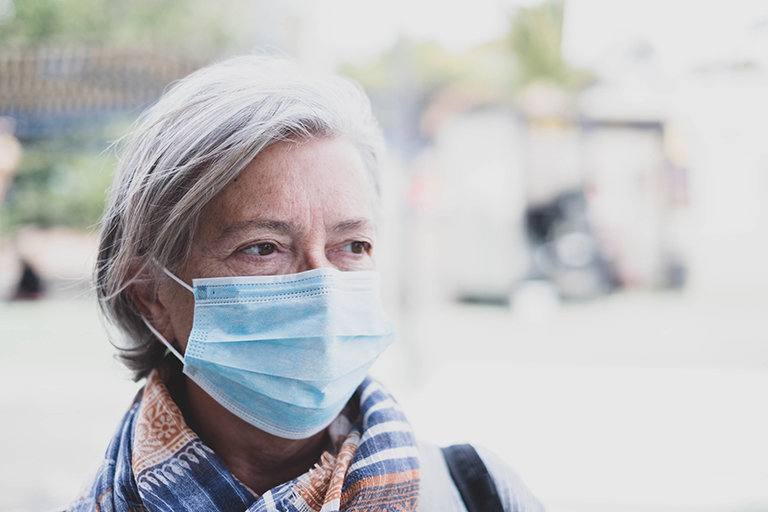
What does it mean to be immunocompromised?
Over the past 18 months, we’ve heard the word “immunocompromised” used to describe the community of people who have a heightened risk of developing complications from COVID-19. Unless you or loved one is immunocompromised, you may not know what this entails. But with COVID-19 not showing any signs of slowing down, we must be prepared to protect ourselves and our loved ones from the relentless virus.
What does it mean to be immunocompromised?
Immunocompromised is a broad term that simply means having a weakened immune system. The National Institutes of Health explains that being immunocompromised may be caused by diseases or conditions, and certain medicines or treatments may also result in a weakened immune system. Since immunocompromised is an umbrella term, immunodeficient and immunosuppressed are terms used to further explain why someone may have a weakened immune system.
What’s the difference between immunodeficient and immunosuppressed?
People in our communities who are immunodeficient or immunosuppressed have a higher chance of catching an infection or disease and a lower chance of recovering from it, so how do we differentiate the two?
Immunodeficiency – The Mayo Clinic explains that immunodeficiency, or primary immunodeficiency, is when a person is born without some of the body’s immune defenses or with the immune system not working properly.
Immunosuppression – The National Cancer Institute explains that immunosuppression is when a person has a certain disease or condition – like AIDS, cancer, diabetes, malnutrition and certain genetic disorders – that reduces the immune system’s ability to fight infections or other diseases. Immunosuppression may also be triggered by certain medicines or treatments.
How do I know if I have a weakened immune system?
According to the Mayo Clinic, certain health considerations can influence your susceptibility for severe COVID-19-related illness. These include:
Older age – People 85 and older have a higher chance of developing critical symptoms, and people 65 and older account for about 80% of COVID-related deaths in the U.S. Another difficult aspect regarding older age and COVID-19 is Alzheimer’s disease. If someone has Alzheimer’s disease or dementia, it can cause that person to forget COVID-19 safeguards.
Lung issues – Since COVID-19 attacks the respiratory system, people who suffer from the following lung issues may develop acute symptoms.
- COPD
- Lung cancer
- Cystic fibrosis
- Pulmonary fibrosis
- Moderate to severe asthma
Heart disease – Cardiomyopathy, pulmonary hypertension, congenital heart disease, heart failure and coronary artery disease are all types of heart-related diseases that can cause someone to be immunocompromised.
Diabetes – Type 1 and type 2 diabetes heighten the risk of infections, which results in an increased susceptibility to COVID-19.
Obesity – People with a high body mass index and considered overweight will amplify their risk of fighting infections and diseases.
Cancer – Certain cancers and treatments can cause someone to be immunocompromised, resulting in severe COVID-related illness.
Certain blood disorders – Sickle cell anemia and thalassemia make it difficult for oxygen to move throughout the body properly, sometimes causing life-threatening outcomes related to COVID-19.
Weakened immune system – If someone’s immune system isn’t performing properly, this will allow germs to successfully invade and attack the immune system. Conditions and treatments that can cause this to happen are organ transplants, cancer treatments and HIV/AIDS.
Chronic kidney or liver disease – Having either of these diseases or taking medications for these diseases can cause someone to have a weakened immune system.
Down syndrome – People with Down syndrome suffer from health problems and lung infections that make it easier to contract COVID-19. These include:
- Heart disease
- Sleep apnea
- Obesity
- Diabetes
Since it can be difficult to know if someone is immunocompromised, protect yourself and the people around you by wearing a mask over your nose and mouth, physically distancing yourself from others by at least six feet when in public, washing your hands often for at least 20 seconds and regularly sanitizing frequently touched surfaces.
If you or a loved one has signs or symptoms of COVID-19, or if you have made the decision to get vaccinated, please contact your local Health Department to schedule a visit at a COVID testing or vaccination site.

